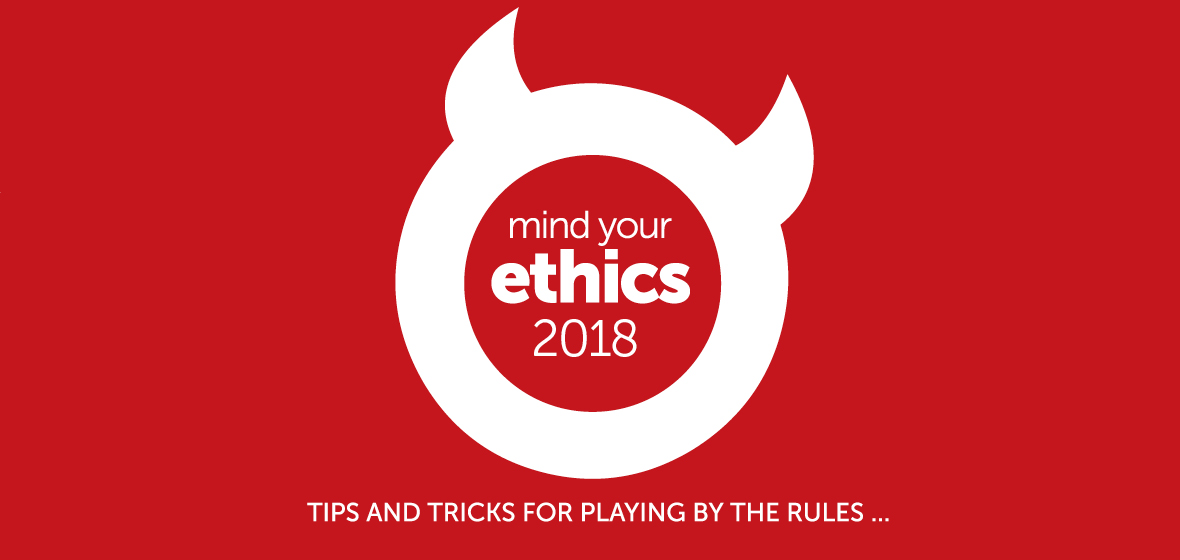The ghosts of Christmas past
By Paul Monaghan, Senior Ethics Lawyer
LSJ Issue 51, December 2018
With the imminent passing of another year we have the occasion to reflect, celebrate and plan for the next year in an environment of yuletide joy.
Let’s use this festive time as an opportunity to demonstrate our ethics and exemplary professional conduct, and not allow an episode of misfortune – in a Dickensian sense – and allow events to come back and haunt us as “the ghosts of Christmas past”.
To observe another practitioner act without restraint in their fervor to celebrate the year conclude can be horrific to the attuned senses of our better nature. Unacceptable behaviour in the workplace will come back to haunt the perpetrator. The guide to our professional obligations may be noted in rule 4 of the Australian Solicitors’ Conduct Rules which include the points:
- The fundamental duty on a practitioner to: … act in the best interest of a client in any matter in which the solicitor represents the client … which may include attendance at all functions the practitioner may attend in their professional capacity;
- To observe the professional standards required and ensure that you must not: … bring the profession into disrepute … by any action or statement;
- And it should also be noted that … a solicitor must not in the course of practice, engage in conduct which constitutes discrimination, sexual harassment or workplace bullying …
When lawyers come together in any number to celebrate, discuss, network and reflect on the completion of another difficult and busy year, we must carry due regard for our ethics and professional standards on every occasion.
The ethics department wishes our readers best wishes for Christmas and the New Year.
Back to top
Q: I have noticed that the same standards do not seem to apply to an email as they once did to formal letters. How can I elevate the tone of emails I send without sounding too stuffy or like I have spent all day drafting them?
By Linden Barnes, Senior Ethics Solicitor
LSJ Issue 50, November 2018
A: Just what is the right level of formality in correspondence these days? How can we strike the right balance between stuffiness and chirpiness as well as appearing cordial without spending the whole day on it?
I won’t wade into the “Dear Sirs” debate or the technological issues of emojis – see the May 2018 edition of LSJ for a discussion. Moreover, our senior ethics solicitor has written eloquently about stern but ethical responses and Rule 34 (LSJ, June 2018).
Instead, let’s look at Rule 4, which says solicitors must be courteous at all times, and Rule 5, which requires solicitors to avoid bringing the profession into disrepute. Getting the formality wrong could breach those rules, yet the desired level is rather subjective. Here’s some general guidelines.
Think of the judge: Would you be happy to have what you have written read out and dissected in court for hours? This is actually a very good test to run past all your correspondence, whether it is a question of formality or the substance of the correspondence. Remember that emails last forever.
Think of the recipient: Have you seen examples of their correspondence? There are definitely times when mimicry is a good idea. If your intended recipient adopts a certain level of formality, it may be good to do likewise.
Think of the risks: This is the heavy-handed part, but a solicitor’s job is to consider risks. If you get it wrong, it could be a disciplinary matter.
Now I need some guidance. Should I sign off this article with yours faithfully, tootle pip or what?
Back to top
Q: I am a graduate solicitor who has observed a partner at my firm using aggressive tactics to deal with lawyers for the other side. How can I have a respectful discussion with her about this without risking my job?
By Paul Monaghan, Senior Ethics Lawyer
LSJ Issue 49, October 2018
A: Well-developed communication skills are sought after and important professional attributes for any new lawyer.
In this scenario, an early-career lawyer may question what behaviour is appropriate and what example to follow. When considering such questions, be aware of what the obligations are for a legal practitioner in all communications and, in particular, when a heated dialogue may occur.
To observe another practitioner act with hostility and aggression may be an apparent breach of the solicitors’ rules and may require the young lawyer to raise it as an issue in the conduct of a matter.
When reviewing these professional obligations, it should be noted that:
- There is a duty on a practitioner to:
- “ … be honest and courteous in all dealings in the course of legal practice …” (Rule 4)
and
- To observe the professional standards required in all communications and ensure that you must not:
- “… make any statement which grossly exceeds the legitimate assertion of the rights or entitlements of the solicitor’s client, and which misleads or intimidates the other person …” (Rule 34.1.).
The training to acquire and become proficient in all professional communications will be an ongoing task covering the entire career of every lawyer. The threads that are brought together are courtesy, accuracy and professional standards.
These combine to give the professional communications skills that are the hallmark of every lawyer.
Even when others may waver, you must be firm in upholding these standards.
Back to top
Q: How do I win clients in a market where competition is so fierce? Are there certain tactics to avoid?
By Linden Barnes, Senior Ethics Solicitor
LSJ Issue 48, Septembe 2018
A: Has the ethics solicitor turned into a marketing guru? Most definitely not. My “clients” are you, the solicitors of NSW. Luckily for me, you keep on calling (that number again is 02 9926 0114 – there’s my bit of marketing).
So, let us rephrase the question to an area where I can claim a little more expertise:
What are some of the ethical considerations when seeking clients? Here are three to ponder.
Rule 12 – This is the rule about avoiding conflicts between our own interests and those of the client. It gives guidance on steps which may help avoid such conflicts, including in relation to referral fees. Please don’t forget the prohibition on referral fees in motor accident matters.
Rule 34 – This rule is in two distinct parts. First, there are the inappropriate tactics which we must not use for our client. Second, and more relevantly to this topic, is a prohibition on seeking out clients when they are at a significant disadvantage. I am sure we have all heard of the term “ambulance chasing”.
Rule 5 – The final rule I want to mention is the very broad duty not to harm the administration of justice or the reputation of the profession. Rule 34 is a good example of where certain client-building activities could breach Rule 5 – a double whammy in terms of rule breaching.
We are no longer like the lawyers of old who were not able to dirty their hands by touching money. However, there are still important ethical considerations in seeking clients. Those considerations reflect our privileged position as members of the legal profession.
Q: When accepting a retainer, what can I do to avoid complaints about responsible time management?
By Paul Monaghan, Senior Ethics Lawyer
LSJ Issue 47, August 2018
A: From the initial contact with a client, be aware of the obligations upon a legal practitioner. A quick reminder-list for each file may help avoid pitfalls by noting the following issues:
The acceptance of a retainer by the practitioner is on the basis of being able to “… act in the best interests of a client in any matter in which the solicitor represents the client … and be honest and courteous in all dealings in the course of legal practice ….” (Rule 4)
To accept a retainer, a practitioner will require the availability of adequate time and resources that can be devoted to a client’s matter, in order to “… deliver legal services competently, diligently and as promptly as reasonably possible….” (Rule 4)
Complaints about excessive delay and failure communicate with a client are too often traced back to the formative part of the solicitor/client relationship, on how the retainer is accepted and the time the practitioner has available to address the issues of the matter.
When undertaking initial screening for any matter, it is common practice to consider issues stated on a checklist that is often focused on avoiding conflicts of interest. Too often there is no consideration given to time management. The error manifests itself in the solicitor becoming overcommitted.
Unexplained delays and a lack of communication will raise the ire of any client. This becomes a fertile ground for complaints. Time management should be integral in the decision to accept a retainer. To avoid this error, consideration must be given to include a time budget for every matter.
There should be a raised awareness for solicitors to ensure they have included planning for sufficient time to address the interests of the client “with reasonable promptness”.




